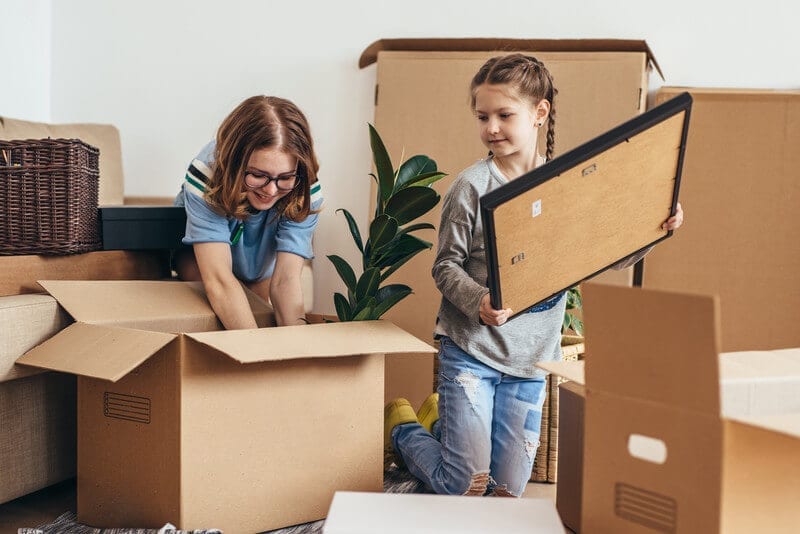
Prefer not to leave your phone number?
No problem!
Schedule an Appointment at your Convenience
(Only email is required)
Schedule an AppointmentOr Call Now
844-545-1881By: Last Updated: Jul 09, 2024
If you’re aiming to save some precious money on your next move, getting free boxes is a great idea. It’ll save you money and take some financial weight off your shoulders!

Boxes are one of the most important parts of your move. You’ll need them to carefully package your smaller items to keep them safe during transportation.
The best ways to find free moving boxes are through friends and family, recycling bins, buying store-bought ones, and using marketplace apps.
Boxes can add up the cost of your move without you even seeing it. Buying in bulk can bring you an unexpected bill that could best be spent elsewhere if you’re on a budget. Save your money on boxes and invest in bubble wrap, a dolly, or a wheeled cart instead.
Since everyone uses boxes, friends and family are a great place to look when it comes to finding some! Ask around to see if anyone has any they aren’t using. You can also send some texts out to friends and family a few weeks before you’ll need the boxes, and kindly ask them to save their boxes for the next few weeks.
It’s all about communication if you’re getting boxes from friends and family. The sooner you reach out and ask them to start saving boxes, the better.
You’re also more likely to get a bigger variety of box sizes from them depending on the size of packages they’re ordering.
You have two main options to get free boxes from recycle bins. The first option requires you to plan months in advance. Pick a designated storage area on your property, and start putting all of your used boxes in that area. Starting a collection early on will help you stack more and more boxes come move day.
The next option is to find any public recycling dumpster in your neighborhood. A lot of gas stations have these, but make sure you ask the workers wherever you are if you can take some leftover boxes.
Since these dumpsters are usually located at gas stations or work facilities, there is often a specific bin only for boxes. Google the best place to dump large boxes in your area, and oftentimes, you can go there and take the boxes people left for your own use.
Most of the boxes found at these locations will be broken down so you will need to head to your local store and pick up a few rolls of tape to put them back together. It’s a great way to find big boxes for larger items on a budget.
Another great place to find free moving boxes is any used marketplace app or website. People resort to these websites to get rid of things they don’t need. You can simply enter “free boxes” into the search bar and find people trying to get rid of them in bulk.
If you’re also looking for new furniture for your new home, you can also find free couches, tables, and chairs all over these websites!
A few of the best online marketplaces to look include but aren’t limited to:
These are only the most well-known platforms. You can search for smaller used marketplace apps and sites and look there as well.
You should also be using any social media platform you have to your advantage. Post on your stories and reach out to connections in your area to check if they have any spare boxes.
As a general rule of thumb, the more you post and look around, the more likely you are to find free boxes!
The more creative you get when looking, the better luck you’ll have in snagging a great find on some free boxes. Friends and family, used marketplace apps, and recycling bins around your area will be your best bets to find free boxes, but that doesn’t mean you can’t find other creative ways to find some free boxes.
As a general rule of thumb, the more people you ask and the more you post, the more boxes you’ll find. It’s a complete numbers game of looking around, so remember the more the merrier! We wish you a safe and happy move!